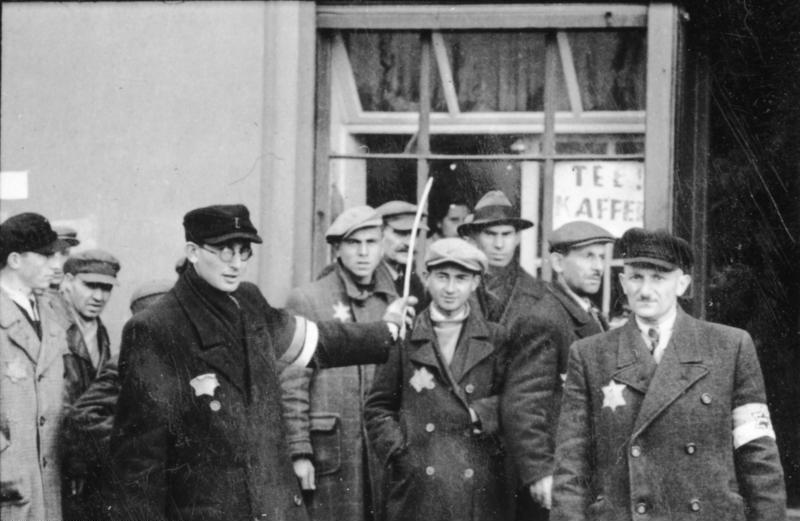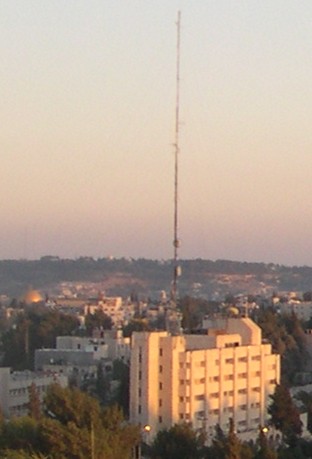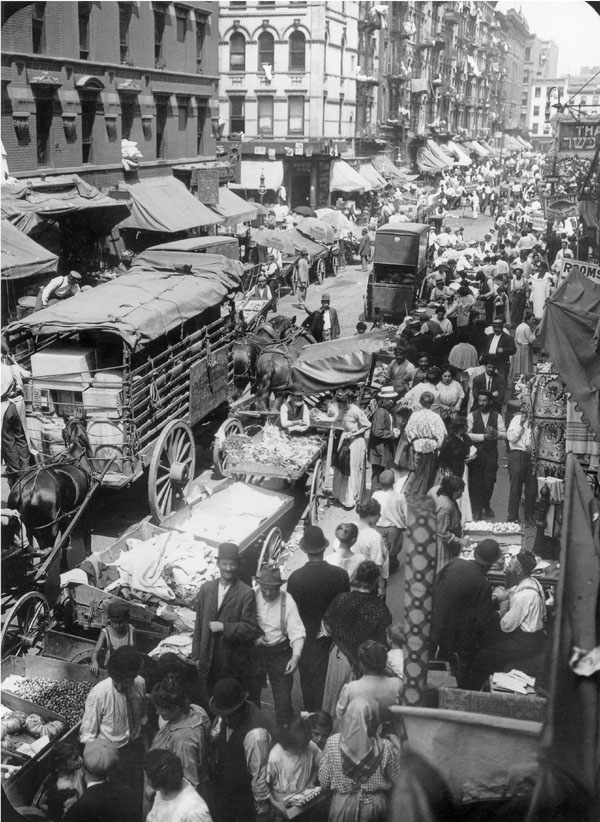|
Nazis And Nazi Collaborators (Punishment) Law
The Nazis and Nazi Collaborators (Punishment) Law () is a 1950 Israeli law passed by the First Knesset that provides a legal framework for the prosecution of crimes against Jews and other persecuted people committed in Nazi Germany, German-occupied Europe, or territory under the control of another Axis power between 1933 and 1945. The law's primary target was Jewish Holocaust survivors alleged to have collaborated with the Nazis, in particular prisoner functionaries ("kapos") and the Jewish Ghetto Police. It was motivated by the anger of survivors against perceived collaborators and a desire to "purify" the community. The law criminalizes crimes against humanity, war crimes, and "crimes against the Jewish people", as well as a variety of lesser offenses. It has a number of unusual provisions, including '' ex post facto'' application, extraterritoriality, a relaxation in the usual rules of evidence, and mandatory death sentence for the most serious crimes laid out in the law. U ... [...More Info...] [...Related Items...] OR: [Wikipedia] [Google] [Baidu] |
Israeli Law
Israeli law is based mostly on a common law legal system, though it also reflects the diverse history of the territory of the State of Israel throughout the last hundred years (which was at various times prior to independence under Ottoman, then British sovereignty), as well as the legal systems of its major religious communities. The Israeli legal system is based on common law, which also incorporates facets of civil law. The Israeli Declaration of Independence asserted that a formal constitution would be written, though it has been continuously postponed since 1950. Instead, the Basic Laws of Israel ( he, חוקי היסוד, ''ħuqey ha-yesod'') function as the country's constitutional laws. Statutes enacted by the Knesset, particularly the Basic Laws, provide a framework which is enriched by political precedent and jurisprudence. Foreign and historical influences on modern-day Israeli law are varied and include the Mecelle (Hebrew: מג'לה; the civil code of the Ottoman ... [...More Info...] [...Related Items...] OR: [Wikipedia] [Google] [Baidu] |
Bundesarchiv Bild 101III-Wisniewski-025-08, Polen, Ghetto Litzmannstadt, Bewohner
, type = Archive , seal = , seal_size = , seal_caption = , seal_alt = , logo = Bundesarchiv-Logo.svg , logo_size = , logo_caption = , logo_alt = , image = Bundesarchiv Koblenz.jpg , image_caption = The Federal Archives in Koblenz , image_alt = , formed = , preceding1 = , preceding2 = , dissolved = , superseding1 = , superseding2 = , agency_type = , jurisdiction = , status = Active , headquarters = PotsdamerStraße156075Koblenz , coordinates = , motto = , employees = , budget = million () , chief1_name = Michael Hollmann , chief1_position = President of the Federal Archives , chief2_name = Dr. Andrea Hänger , chief2_position ... [...More Info...] [...Related Items...] OR: [Wikipedia] [Google] [Baidu] |
Orna Ben-Naftali
Orna Ben-Naftali ( he, ארנה בן-נפתלי) is the rector of the College of Management Academic Studies and the Emile Zola Chair for Human Rights. She has previously served as dean of the Striks School of Law, College of Management Academic Studies. Academic career Ben-Naftali is a graduate of the Tel Aviv University Law faculty (LL.B.), Harvard University (M.A. History) and the Fletcher School of Law and Diplomacy (M.A.L.D.; Ph.D). She has been a research fellow at the Max Planck Institute for Comparative Public Law and International Law, Heidelberg; The Law Department of the European University Institute, Florence; and the Institute for Advanced Studies, Hebrew University of Jerusalem; and a visiting professor at The European Academy of The European University Institute, Brandeis University, and The Fletcher School of Law and Diplomacy. She formerly served on the editorial board of the ''European Journal of International Law'', and currently serves on the editorial board ... [...More Info...] [...Related Items...] OR: [Wikipedia] [Google] [Baidu] |
Israel Police
The Israel Police ( he, משטרת ישראל, ''Mišteret Yisra'el''; ar, شرطة إسرائيل, ''Shurtat Isrāʼīl'') is the civilian police force of Israel. As with most other police forces in the world, its duties include crime fighting, traffic control, maintaining public safety, and counter-terrorism. It is under the jurisdiction of the Minister of Public Security. The National Headquarters of the Israel Police is located at Kiryat HaMemshala in Jerusalem. The Israel Police operates throughout Israel, the Area C of the West Bank and the Golan Heights, in all places in which Israel has civilian control. It is the sole civilian law enforcement agency in Israel: there are no municipal or regional police forces, though some municipalities operate municipal enforcement units that deal with low-level offenses and provide additional security and as such have the power to issue fines, but do not have police authority. In an emergency, the police can be reached by dialing 1 ... [...More Info...] [...Related Items...] OR: [Wikipedia] [Google] [Baidu] |
World Zionist Congress
The Zionist Congress was established in 1897 by Theodor Herzl as the supreme organ of the Zionist Organization (ZO) and its legislative authority. In 1960 the names were changed to World Zionist Congress ( he, הקונגרס הציוני העולמי ''HaKongres HaTsioni HaOlami'') and World Zionist Organization (WZO), respectively. The World Zionist Organization elects the officers and decides on the policies of the WZO and the Jewish Agency, including "determining the allocation of funds." The first Zionist Congress was held in Basel, Switzerland in 1897. Any Jew over age 18 who belongs to a Zionist association is eligible to vote, and the number of elected delegates to the Congress is 500. 38% of the delegates are allocated to Israel, 29% to the United States of America, and 33% to the remainder of the countries of the Diaspora. In addition there are about 100 delegates which are appointed by International Organizations (e.g. B'nai B'rith, see below) affiliated with WZO. After ... [...More Info...] [...Related Items...] OR: [Wikipedia] [Google] [Baidu] |
Landsmanshaft
A landsmanshaft ( yi, לאַנדסמאַנשאַפט, also landsmanschaft; plural: landsmanshaftn) is a mutual aid society, benefit society, or hometown society of Jewish immigrants from the same European town or region. History The Landsmanshaft organizations aided immigrants' transitions from Europe to America by providing social structure and support to those who arrived in the United States without the family networks and practical skills that had sustained them in Europe. Toward the end of the 19th and in the beginning of the 20th centuries, they provided immigrants help in learning English, finding a place to live and work, locating family and friends, and an introduction to participating in a democracy, through their own meetings and procedures such as voting on officers, holding debates on community issues, and paying dues to support the society. Through the first half of the 20th century, meetings were often conducted and minutes recorded in Yiddish, which was the languag ... [...More Info...] [...Related Items...] OR: [Wikipedia] [Google] [Baidu] |
Mandatory Palestine
Mandatory Palestine ( ar, فلسطين الانتدابية '; he, פָּלֶשְׂתִּינָה (א״י) ', where "E.Y." indicates ''’Eretz Yiśrā’ēl'', the Land of Israel) was a geopolitical entity established between 1920 and 1948 in the region of Palestine under the terms of the League of Nations Mandate for Palestine. During the First World War (1914–1918), an Arab uprising against Ottoman rule and the British Empire's Egyptian Expeditionary Force under General Edmund Allenby drove the Ottoman Turks out of the Levant during the Sinai and Palestine Campaign. The United Kingdom had agreed in the McMahon–Hussein Correspondence that it would honour Arab independence if the Arabs revolted against the Ottoman Turks, but the two sides had different interpretations of this agreement, and in the end, the United Kingdom and France divided the area under the Sykes–Picot Agreementan act of betrayal in the eyes of the Arabs. Further complicating the issue was t ... [...More Info...] [...Related Items...] OR: [Wikipedia] [Google] [Baidu] |
Social Ostracism
Social organisms, including human(s), live collectively in interacting populations. This interaction is considered social whether they are aware of it or not, and whether the exchange is voluntary or not. Etymology The word "social" derives from the Latin word ''socii'' ("allies"). It is particularly derived from the Italian ''Socii'' states, historical allies of the Roman Republic (although they rebelled against Rome in the Social War of 91–87 BC). Social theorists In the view of Karl MarxMorrison, Ken. ''Marx, Durkheim, Weber. Formations of modern social thought'', human beings are intrinsically, necessarily and by definition social beings who, beyond being "gregarious creatures", cannot survive and meet their needs other than through social co-operation and association. Their social characteristics are therefore to a large extent an objectively given fact, stamped on them from birth and affirmed by socialization processes; and, according to Marx, in producing and reproducin ... [...More Info...] [...Related Items...] OR: [Wikipedia] [Google] [Baidu] |
Displaced Persons Camps In Post-World War II Europe
Displaced may refer to: * Forced displacement, the involuntary movement of people from their home * ''Displaced'' (2006 film), a 2006 British feature film produced by Skylandian Pictures * ''Displaced'' (2010 film), a 2010 American documentary directed by Idil Ibrahim * "Displaced" (''Star Trek: Voyager''), an episode of ''Star Trek: Voyager'' {{disambiguation ... [...More Info...] [...Related Items...] OR: [Wikipedia] [Google] [Baidu] |
Nazi Concentration Camps
From 1933 to 1945, Nazi Germany operated more than a thousand concentration camps, (officially) or (more commonly). The Nazi concentration camps are distinguished from other types of Nazi camps such as forced-labor camps, as well as concentration camps operated by Germany's allies. on its own territory and in parts of German-occupied Europe. The first camps were established in March 1933 immediately after Adolf Hitler became Chancellor of Germany. Following the 1934 purge of the SA, the concentration camps were run exclusively by the SS via the Concentration Camps Inspectorate and later the SS Main Economic and Administrative Office. Initially, most prisoners were members of the Communist Party of Germany, but as time went on different groups were arrested, including "habitual criminals", "asocials", and Jews. After the beginning of World War II, people from German-occupied Europe were imprisoned in the concentration camps. Following Allied military victories, the ... [...More Info...] [...Related Items...] OR: [Wikipedia] [Google] [Baidu] |
Judenrat
A ''Judenrat'' (, "Jewish council") was a World War II administrative agency imposed by Nazi Germany on Jewish communities across occupied Europe, principally within the Nazi ghettos. The Germans required Jews to form a ''Judenrat'' in every community across the occupied territories. The ''Judenrat'' constituted a form of self-enforcing intermediary, used by the Nazi administration to control larger Jewish communities. In some ghettos, such as the Łódź Ghetto, and in Theresienstadt, the Germans called the councils "Jewish Council of Elders" (''Jüdischer Ältestenrat'' or ''Ältestenrat der Juden''). Jewish communities themselves had established councils for self-government as early as the Middle Ages. The Jewish community used the Hebrew term ''Kahal'' (קהל) or ''Kehillah'' (קהילה), whereas the German authorities generally used the term ''Judenräte''. The Judenräte are notorious today for their collaboration with the Nazi regime, almost always under extreme coerc ... [...More Info...] [...Related Items...] OR: [Wikipedia] [Google] [Baidu] |
Nazi Ghettos
Beginning with the invasion of Poland during World War II, the Nazi regime set up ghettos across German-occupied Eastern Europe in order to segregate and confine Jews, and sometimes Romani people, into small sections of towns and cities furthering their exploitation. In German documents, and signage at ghetto entrances, the Nazis usually referred to them as ''Jüdischer Wohnbezirk'' or ''Wohngebiet der Juden'', both of which translate as the Jewish Quarter. There were several distinct types including ''open ghettos'', ''closed ghettos'', ''work'', ''transit'', and ''destruction ghettos'', as defined by the Holocaust historians. In a number of cases, they were the place of Jewish underground resistance against the German occupation, known collectively as the ghetto uprisings. Background and establishment of the ghettos The first anti-Jewish measures were enacted in Germany with the onset of Nazism; these measures did not include ghettoizing German Jews: such plans were rejecte ... [...More Info...] [...Related Items...] OR: [Wikipedia] [Google] [Baidu] |






